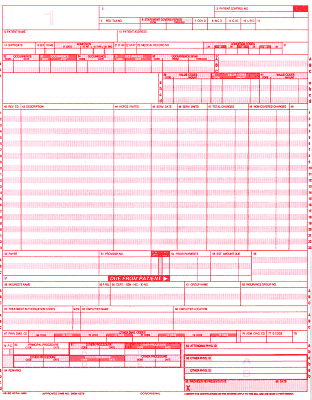

Therefore, you have no reasonable expectation of privacy. By using this system, you understand and consent to the following: At any time, and for any lawful Government purpose, the government may monitor, record, and audit your system usage and/or intercept, search and seize any communication or data transiting or stored on this system. Personal use of social media and networking sites on this system is limited as to not interfere with official work duties and is subject to monitoring. Per 45 CFR 60.20(b), any person who violates the Privacy Act may be subject to a civil monetary penalty. Employees accessing the system should do so only in accordance with the Privacy Act, 5 USC 552a. This is a Privacy Act protected system, with routine use provisions contained in 45 CFR 60.18. Only specific entities authorized by law may request the disclosure of information from (i.e., query) or submit reports to the National Practitioner Data Bank (NPDB). Unauthorized or improper use of this system is prohibited and may result in disciplinary action and/or civil and criminal penalties. This system is provided for Government-authorized use only. Our field office staff would be happy to speak with you to explore your options.This warning banner provides privacy and security notices consistent with applicable federal laws, directives, and other federal guidance for accessing this Government system, which includes all devices/storage media attached to this system. It also can be difficult to figure out the pros and cons of filing a charge under the EPA instead of a lawsuit.

Figuring out how much time you have to file a charge is complicated. Filing a Title VII charge will not extend the deadline for filing an EPA lawsuit. In order to pursue a Title VII claim, you must file a charge with EEOC first. What this means is, if you have an Equal Pay Act claim, you may also want to file a Title VII claim. Keep in mind, Title VII also makes it illegal to discriminate based on sex in the payment of wages and benefits. Equal Pay Act And Title VII And Time Limits The deadline for filing a charge or lawsuit under the EPA is two years from the day you received the last discriminatory paycheck (this is extended to three years in the case of willful discrimination). Instead, you are allowed to go directly to court and file a lawsuit. Under the Equal Pay Act, you don't need to file a charge of discrimination with EEOC. If you plan to file a charge alleging a violation of the Equal Pay Act (which prohibits sex discrimination in wages and benefits), different deadlines apply. In harassment cases, you must file your charge within 180 or 300 days of the last incident of harassment, although we will look at all incidents of harassment when investigating your charge, even if the earlier incidents happened more than 180/300 days earlier. There is one exception to this general rule and that is if you are alleging ongoing harassment. If you didn't, we would only investigate your discharge.

In other words, you must have filed a charge challenging the demotion within 180/300 days from the day you were demoted. In this case, only your claim of discriminatory discharge is timely. You believe the employer based its decision to demote and fire you on your race, and you file a charge the day after your discharge. For example, let's say you were demoted and then fired a year later. If More Than One Discriminatory Event Took PlaceĪlso, if more than one discriminatory event took place, the deadline usually applies to each event.

If you aren't sure how much time is left, you should contact one of our field offices as soon as possible so we can assess whether you still have time. Holidays and weekends are included in the calculation, although if the deadline falls on a weekend or holiday, you will have until the next business day. Other forums for resolution may be pursued at the same time as the processing of the EEOC charge. Time limits for filing a charge with EEOC generally will not be extended while you attempt to resolve a dispute through another forum such as an internal grievance procedure, a union grievance, arbitration or mediation before filing a charge with EEOC. Regardless of how much time you have to file, it is best to file as soon as you have decided that is what you would like to do. The time limit can be extended under certain circumstances. Note: Federal employees and job applicants have a different complaint process, and generally must contact an agency EEO Counselor within 45 days.


 0 kommentar(er)
0 kommentar(er)
